When parents obtain a divorce in Arizona, a court’s decisions about custody and visitation are based on what the court believes are the best interests of the child or children. Before you divorce, or if a custody or visitation dispute arises after your divorce, speak with a lawyer helping clients with family law.
Because the courts in Arizona presume that having a relationship with both parents is almost always in a child’s best interests, sole custody is far less common in this state than joint custody. However, if a court deems one parent unfit, it may award sole custody to the other parent.
A sole custodial parent has the legal right to make final decisions on a number of matters even if the non-custodial parent disagrees. Sole custodial parents have the exclusive legal right to make decisions about a child’s religious training, education, and medical treatments, for example.
Do Non-Custodial Parents Have Any Parental Rights?
A court order for sole legal decision making does not, however, take away all of the non-custodial parent’s rights. In most cases in Arizona, for example, a non-custodial parent will retain visitation rights and the right to access the child’s educational, legal, and medical records.
Some parents may want to know if a parent who has sole legal decision making may limit a non-custodial parent’s legal access to their child’s healthcare records. Arizona law (ARS 25-403.06) gives both parents access to the child’s records from whoever is responsible for those records.
What Does the Law Say About Parental Access to Medical Records?
Even if a parent has sole legal decision making in Arizona, that parent in most cases may not prohibit the other parent from access to information about the child’s religious training, education, or medical care. Here is what the Arizona statute provides regarding access to a child’s medical records:
- Unless otherwise specified by law or a court order, upon reasonable requests, both parents legally have full access to medical records and other documentation about the child’s education and mental, physical, emotional, and moral health and well-being including police, school, court, medical, and other records from the custodian of those records or the child’s other parent.
- A party that doesn’t meet a parent’s reasonable request must compensate that parent for attorney fees and court costs incurred by the parent in order to compel compliance.
- Parents who have joint custody may not designate a single pharmacy at one location as an exclusive source for a child’s prescriptions without the consent of the child’s other parent.
- Parents who try to prevent a release of educational, legal, or medical information or attempt to withhold prescriptions without a previous court order are subject to legal sanctions.
Thus, in most cases, after a parenting plan is put in place each of the parents are entitled by Arizona law to request and receive copies of their child’s legal, educational, and medical records directly from the custodian of the records without needing the other parent’s authorization or permission.
When May a Parent be Kept From a Child’s Medical Records?
It does not matter if the parent who is seeking the legal, medical, or educational information has joint custody, sole custody, or no custody. That parent may access the child’s medical records. However, like almost everything else in the law, there are several exceptions to the general rule.
For example, if a healthcare provider believes that releasing the medical records of a child might place the child in harm’s way (from the parent who is requesting the records), that healthcare provider may withhold the medical records, at least temporarily.
But in response, that parent has the right to seek a court order that compels the release of the medical records. An Arizona court will then make a final determination regarding the release of the child’s medical records based upon what the court believes to be the child’s best interests.
A parent with sole custody cannot legally stop the other parent from accessing the child’s medical records unless the parent with sole custody obtains a court order that specifically prevents the other parent from gaining access to the records.
Are a Child’s Medical Records Governed by Federal Law?
Arizona law, as explained above, allows only a medical provider to withhold a child’s medical records from a parent. However, the federal Health Insurance Portability and Accountability Act (HIPAA) may also prevent a parent from obtaining a minor child’s medical records if:
A. The minor child consented to the medical treatment, and the parent’s consent was not required by law.
B. The minor received medical treatment under court discretion or under the discretion of a court-appointed person who had the legal right to make medical decisions for the child.
C. The parent agreed to allowing the medical provider and the child to have a confidential medical relationship.
Who Should Consult an Attorney, and When?
Parents are not the only ones who may need an attorney’s advice regarding a child’s medical records. If a parent objects to the disclosure of a child’s medical records to the other parent, a healthcare provider should take no action before consulting an Arizona family law attorney.
Parents, of course, should consult a family law attorney if they have any questions regarding family law in Arizona, child custody, child support, parental rights, visitations and parenting schedules, or access to a child’s medical records.
Divorcing and divorced parents can save themselves a great deal of time – and some legal fees, too – if they can agree to some compromises on these issues. When a dispute about a child cannot be settled voluntarily and out-of-court, the court will impose a resolution.
Does Your Custody and Visitation Arrangement Need to Be Changed?
If you are not satisfied with your current child custody and visitation arrangement, or if changes in your life have made that arrangement unworkable over time, you will need a family law attorney’s help in order to have your child custody agreement or court order modified.
You will also require a family law attorney’s help if your ex has requested a modification of the child custody agreement or court order, but you do not believe that the modification is justified or needed, and you decide to challenge it.
In fact, if you are involved in any dispute about your child with your child’s other parent, a Phoenix family law attorney can explain your rights and options, negotiate with the other parent’s attorney, advocate on your behalf before a judge if necessary, and bring the matter to its best possible resolution.

 Schedule A Consultation!
Schedule A Consultation! Call Us Now
Call Us Now Email Us Now
Email Us Now









